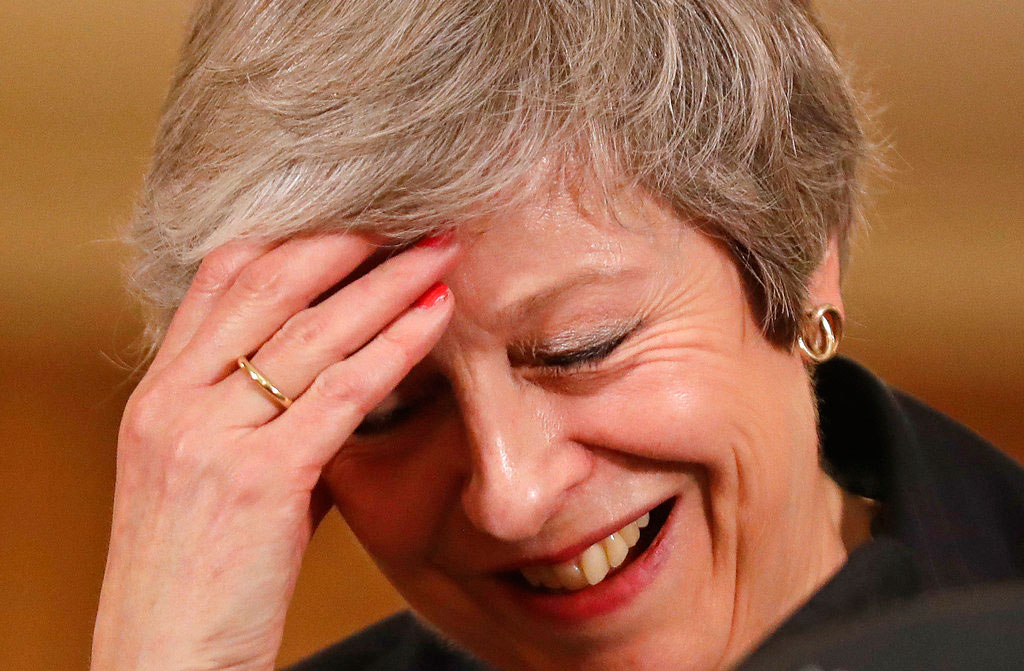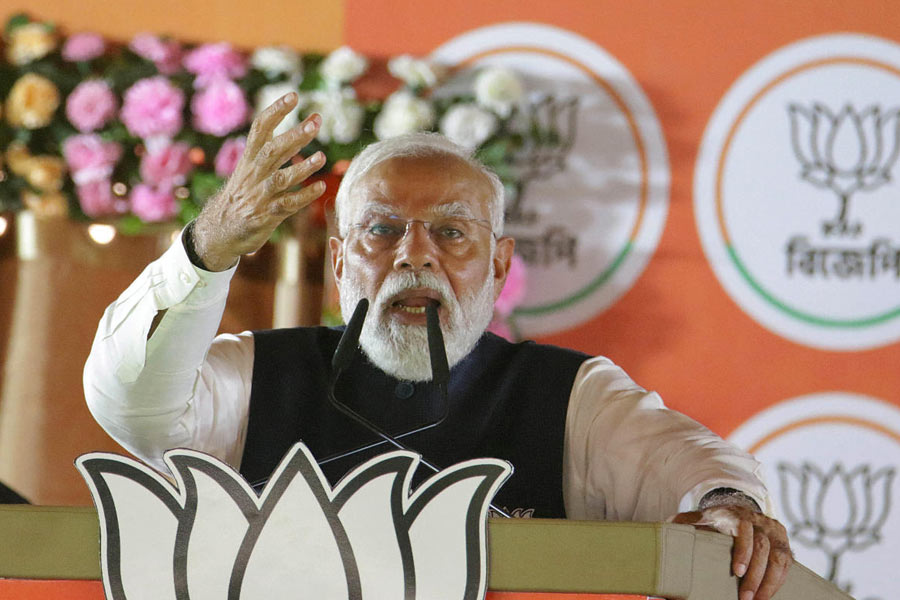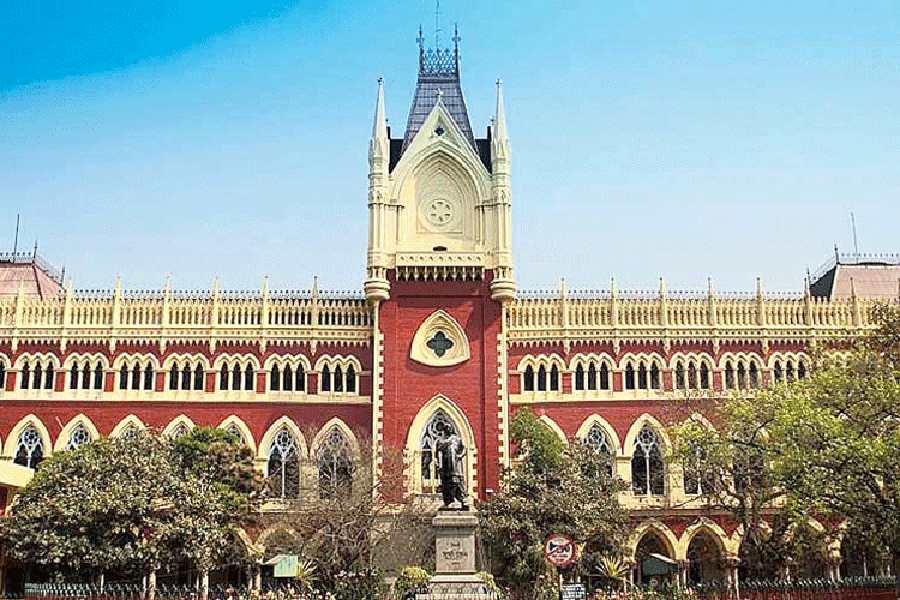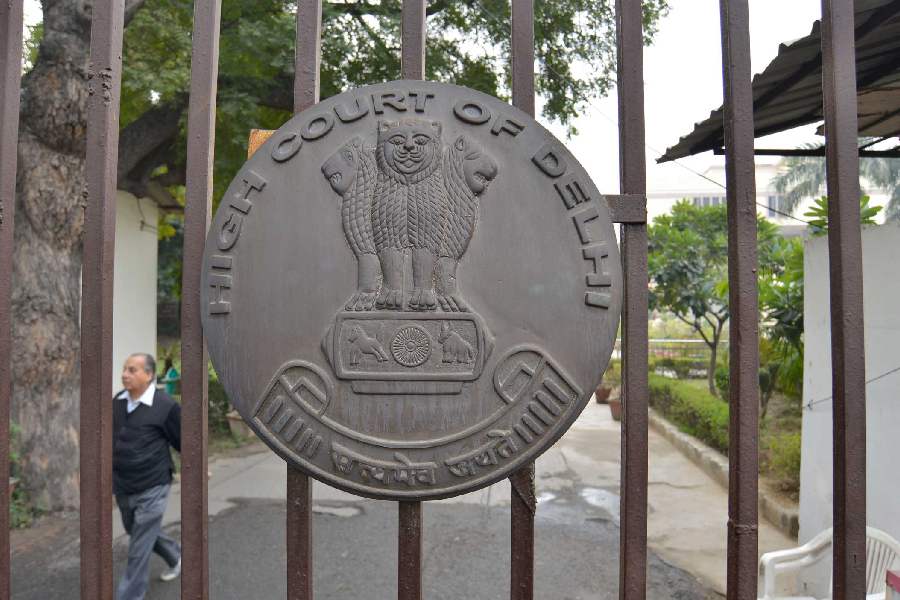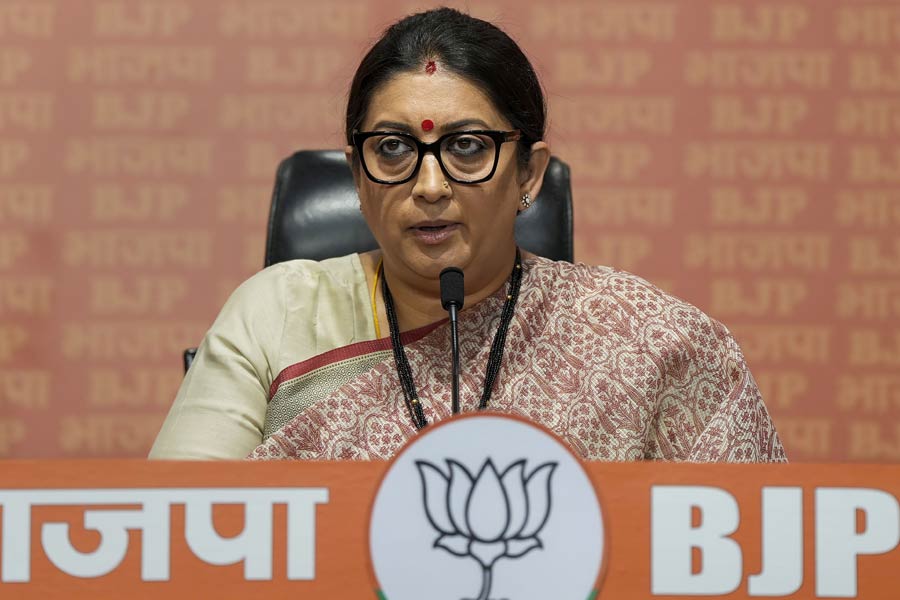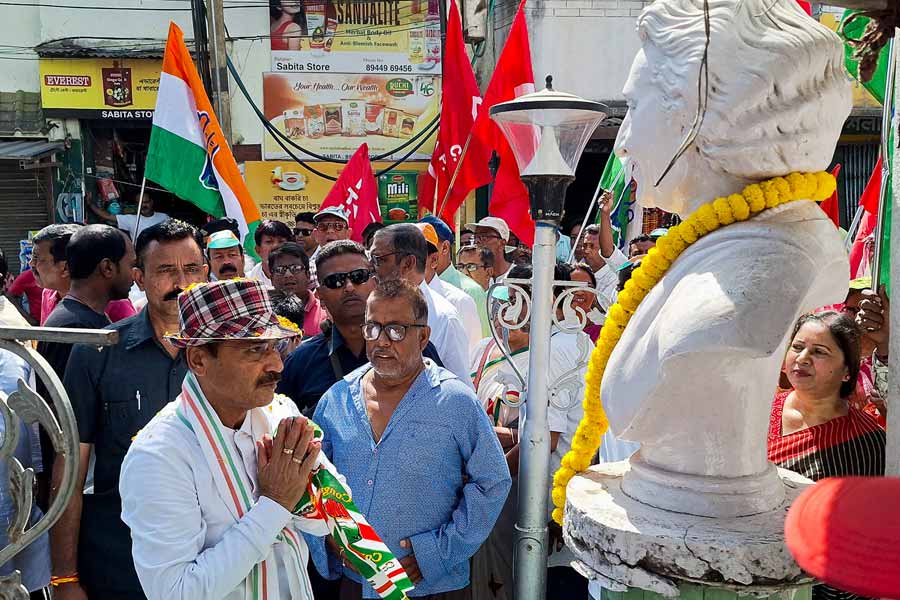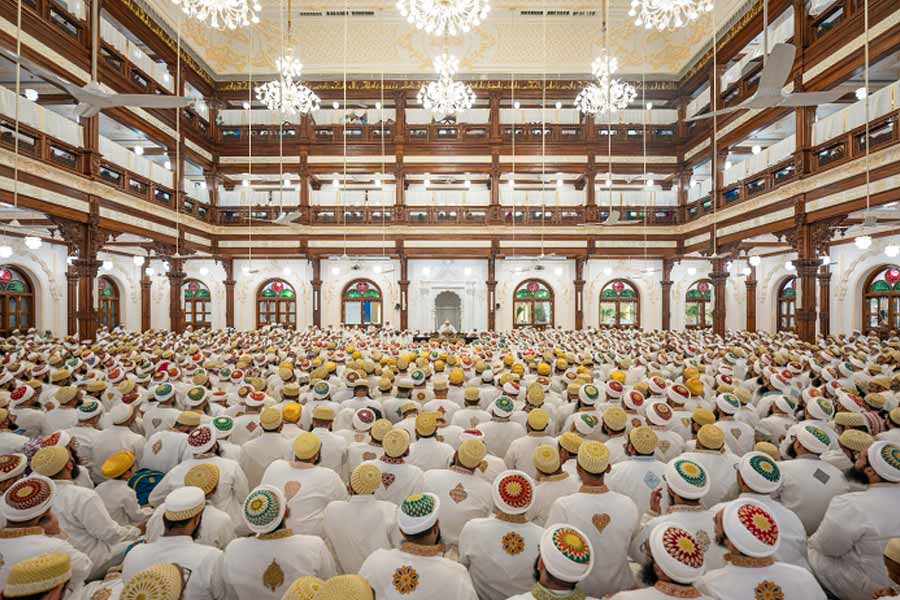Instead of addressing her Indian guests at her much anticipated Diwali party, the British Prime Minister spoke to the nation live at a news conference at 10 Downing Street and used a cricketing analogy to indicate she would carry on acting in the national interest.
“Leadership is about making the right decisions, not the easy decisions. One of my heroes is Geoffrey Boycott. He stuck to it — he got the runs in the end.”
Asked if she would contest any challenge to her position, she replied: “Am I going to see this through? Yes.”
May, who had been planning to hold a Diwali party for representatives of the 2.5 million-strong Indian community in the UK, is facing the prospect of a no-confidence motion in her leadership following a series of dramatic resignations from her government.
Even as the sweetmeats, marigolds and Om symbols were being arranged in an aesthetically pleasing manner inside 10 Downing Street, came the first and most inauspicious of the departures — that of Dominic Raab, who replaced David Davis as Brexit secretary in July this year and was the very man charged with defending the 485-page draft Brexit deal.
From the Indian point of view, the most disappointing resignation was that of Indian-origin Shailesh Vara as Northern Ireland minister who has probably ended his ministerial career.
May was given a torrid time in the Commons from all sides but steadfastly told MPs her agreement would deliver the Brexit people had voted for and allow the UK to take back control of its “money, laws and borders”.
However, arch Brexiteer Jacob Rees-Mogg, whose late father William had once edited The Times, revealed he had submitted a formal letter demanding a leadership contest in the Tory party.
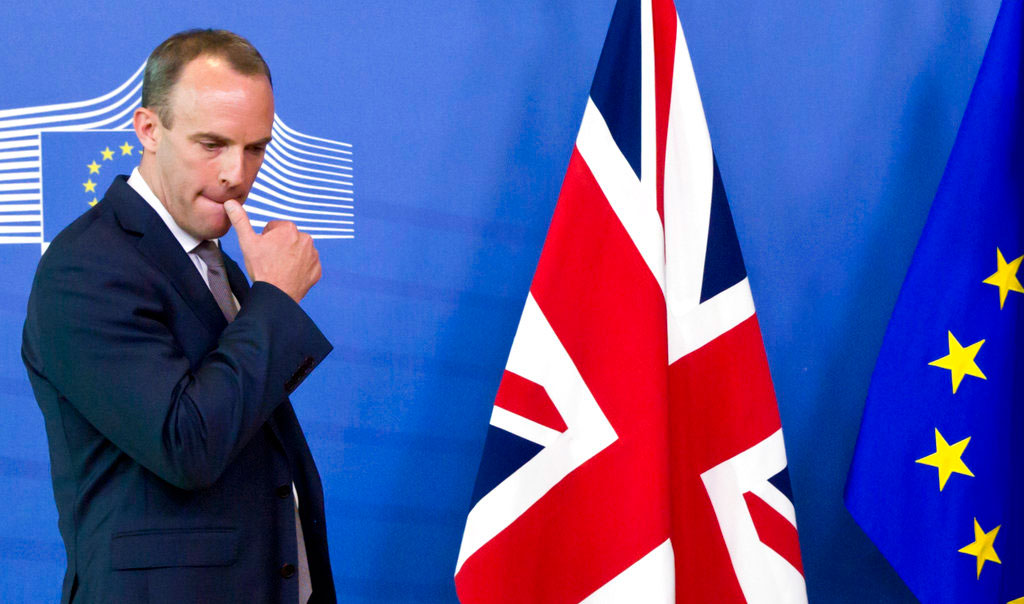
Dominic Raab waits at the EU headquarters in Brussels on August 31, 2018. The Brexit secretary resigned Thursday. AP
Only 48 such letters are needed to trigger such a leadership contest — and that number could soon be reached.
In a letter to Sir Graham Brady, chairman of the backbench 1922 Committee, Rees-Mogg said May’s Brexit deal “has turned out to be worse than anticipated and fails to meet the promises given to the nation by the Prime Minister, either on her own account or on behalf of us all in the Conservative Party manifesto”.
Raab said May should continue as Prime Minister but told her: “For my part, I cannot support the proposed deal for two reasons. First, I believe that the regulatory regime proposed for Northern Ireland presents a very real threat to the integrity of the United Kingdom.
“Second, I cannot support an indefinite backstop arrangement, where the EU holds a veto over our ability to exit.
“Ultimately, you deserve a Brexit secretary who can make the case for the deal you are pursuing with conviction. I am only sorry, in good conscience, that I cannot.”
Born in Uganda into a Gujarati family, Vara, now 58, came to Britain as a child, trained as a lawyer, became Tory MP for North-West Cambridgeshire in 2005 and was made Northern Ireland minister earlier this year. He was once tipped as a future Prime Minister.
Vara, who had voted “remain” in the EU referendum, said the Brexit deal the Prime Minister had negotiated “leaves the UK in a halfway house with no time limit on when we will finally be a sovereign nation”.
Others who followed Raab included work and pensions secretary Esther McVey, who said: “We have gone from no deal is better than a bad deal, to any deal is better than no deal. I cannot defend this, and I cannot vote for this deal.”
Next to go from Raab’s department was the Sri Lankan-origin Suella Braverman, parliamentary under-secretary of state for exiting the European Union.
There were two others who stepped down: Anne-Marie Trevelyan as parliamentary private secretary in the department for education; and Ranil Jayawardena, who is also of Sri Lankan origin, leaving the same post in the ministry of justice.
The departure of three Asians from government strips the government of some of its diversity.
In the Commons MP after MP predicted — probably correctly — that May’s Brexit deal would not get a Commons majority.
The “meaningful vote” will not come for some weeks, with the Prime Minister still determined to get her deal through the Commons.
May told Parliament: “The choice is clear. We can choose to leave with no deal, we can risk no Brexit at all, or we can choose to unite and support the best deal that can be negotiated.”
As to what happens now, the veteran Tory MP, Kenneth Clarke, said: “No one knows.”
Liberal Democrat leader Sir Vince Cable said: “A People’s Vote on the final Brexit deal, where they can choose to remain in the EU, is the only route out of this uncertainty. It is time people had the power to end this mess.”
The root cause
Britons voted to quit the EU in a 2016 referendum, but since then the Conservatives have been split between those who want to keep some close economic ties to the bloc, to protect the economy, and others who want a cleaner break.
Worryingly for May, many of her enemies, on both the Right and the Left, are converging around the view that the compromise she has carefully forged is the worst of both worlds, leaving Britain without a voice in the European Union but still subject to many of its trade rules.
Several leading Brexit supporters have characterised the draft deal as worse than membership in the bloc they find so objectionable.
The focus of the discord has been around plans to ensure that, whatever happens in future trade talks, there should be no physical checks at the border between Northern Ireland, which is part of the UK, and Ireland, which is a member of the European Union.
Under the so-called backstop plan that is part of the draft deal, the whole of the UK would remain in a customs union with the European Union until future trade plans that negate the need for border checks are worked out.
But Northern Ireland would be subject to more of the European Union’s regulatory processes than the rest of the country, which has prompted Raab to express concern about the “integrity” of the UK.
He also objected to the fact that Britain could not unilaterally leave the backstop, a move that would clear a path to exit a customs union and pursue trade deals with other countries.
Additional reporting by New York Times News Service and Reuters

